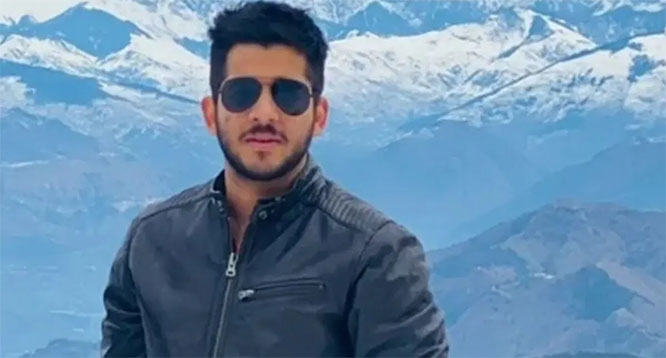Jeddah, Oct 17: The Houthi militias, which are backed by Iran, have — for the third time in less than a week — attacked US Navy in the strategic Bab Al-Mandab Strait, one of the world's busiest shipping lanes.

Saturday night's attack came after the first one on Monday, Oct. 10. At that time, the US Navy said it was unsure if it was being targeted or if the attack was a mistake.
The second attack — on Wednesday, Oct. 12 — prompted the US military to respond with verbal warnings and limited strikes on Thursday. Three radar sites in Houthi-held Yemeni territories near Ras Isa, north of Mukha and near Khoka, were taken out.
Pentagon Press Secretary Peter Cook said at the time that “the limited self-defense strikes were conducted to protect our personnel, our ships and our freedom of navigation.”
However, the Houthi militias — a radical religious group whose primary slogan is “Death to America” — remained undeterred and waged a third attack on Saturday night, firing a number of missiles at the USS Mason and other US ships in the Red Sea.
“The Mason once again appears to have come under fire from cruise missiles fired from Yemen,” Adm. John Richardson, chief of US naval operations, told reporters on Sunday.
The Mason was in international waters when multiple incoming surface-to-surface missiles were detected by the ship's crew about 3:30 p.m. EDT. No damage was reported to the vessel or other ships accompanying it.
A US official was quoted as saying by news agencies that an additional radars could have been used in the latest attack.
Saturday night's attack has eliminated all doubts that the attacks were a mistake or that the Houthis wanted to avoid a confrontation with the US.
In fact, the only one who seems to be avoiding a full-fledged confrontation is the US, thereby emboldening the Houthi militias — as rightly explained by Ali Khedery, formerly the longest serving US official in Iraq who is now based in Dubai.
Khedery blamed the recurrent attacks on America's lack of robust responses to such grave provocations.
“Due to the strategic missteps in the Middle East since Sept. 11 2001, by both US Presidents George W. Bush and Barack Obama and their administrations, and because of the quagmires in Iraq and Afghanistan, many jihadi groups have felt emboldened enough to threaten the US,” he told Arab News on Sunday. “These groups include Sunni jihadi groups, such as Al-Qaeda (Al-Qaeda in Iraq and Al-Qaeda in the Arabian Peninsula) and Daesh, and the Shiite jihadi groups, such as the Quds Force, Hezbollah, the Iraqi Shiite militias and now, most recently, the Houthis.”
“The reason these groups feel emboldened is because the Iranians, for example, working with Al-Qaeda and the Shiite militia groups killed and wounded thousands of American soldiers in both Afghanistan and Iraq without any major repercussions or reactions from the US,” he said.
“A message should have gone that the United States as a superpower cannot, and should not, be messed about by these Third World powers, such as Iran or even worse, by their militias and proxies,” said Khedery. “Unfortunately, a precedent was set when there was no major retaliation to the killings with impunity of American soldiers across Iraq. This led the jihadi groups to become more and more emboldened and that is why there is a situation such as the one in Yemen, where the Houthis feel that they can fire anti-ship missiles at the US Navy without any major response.”
A US State Department official opted not to provide specific answers to specific questions from Arab News. However, he responded with a statement which said that the US had indeed attacked three Houthi radar sites on Thursday in what he described as “limited self-defense strikes.” He added that these counter-attacks were conducted “to protect our personnel, our ships and our freedom of navigation in this important maritime passageway.”
The official insisted, however, that “the strikes were not conducted as part of the Saudi coalition's hostilities with the Houthis” and that “the United States continues to call on all parties in Yemen — the Saudi-led coalition, the Yemeni government, the Houthis and Saleh-aligned forces — to commit to an immediate cessation of hostilities and implement this cessation based on the April 10 terms.”
Salman Al-Ansari, founder and president of the Washington-based Saudi-American Public Relation Affairs Committee (SAPRAC), said one should call things for what they are.
“It is Iran that attacked the US Navy with rockets via its militia in Yemen,” he said. “We, as Saudis, believe that US security is an extension of global security.”
He said Saudi Arabia was very concerned at seeing the Houthis targeting the US Navy. “Saudi Arabia will always be committed to stand with its partner — the US — through thick and thin,” he added.







Comments
Add new comment